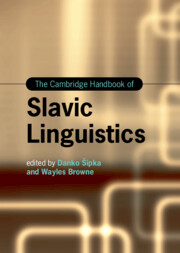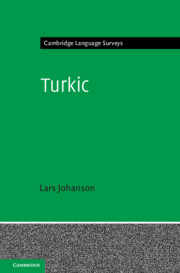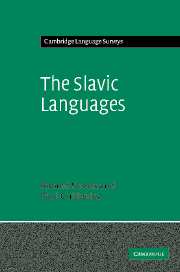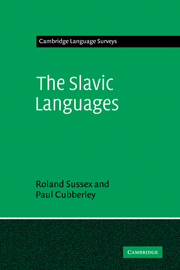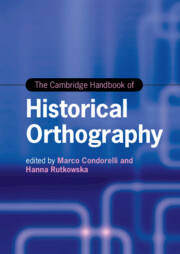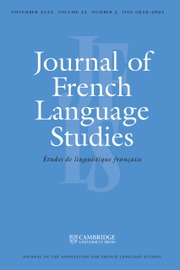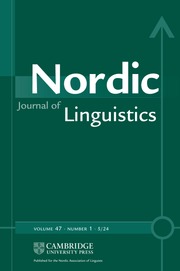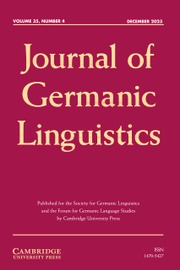The Cambridge Handbook of Slavic Linguistics
The linguistic study of the Slavic language family, with its rich syntactic and phonological structures, complex writing systems, and diverse socio-historical context, is a rapidly growing research area. Bringing together contributions from an international team of authors, this Handbook provides a systematic review of cutting-edge research in Slavic linguistics. It covers phonetics and phonology, morphology and syntax, lexicology, and sociolinguistics, and presents multiple theoretical perspectives, including synchronic and diachronic. Each chapter addresses a particular linguistic feature pertinent to Slavic languages, and covers the development of the feature from Proto-Slavic to present-day Slavic languages, the main findings in historical and ongoing research devoted to the feature, and a summary of the current state of the art in the field and what the directions of future research will be. Comprehensive yet accessible, it is essential reading for academic researchers and students in theoretical linguistics, linguistic typology, sociolinguistics and Slavic/East European Studies.
- Provides an up-to-date systematic review of key topics in Slavic linguistics
- Presents methodology from a range of theoretical perspectives, giving a complete overview of research in the field
- Includes contributors from a diverse range of authors, many native speakers of Slavic languages
Reviews & endorsements
‘This monumental volume brings together cutting-edge research in the field of Slavic linguistics by a collection of leading scholars, tracing both the historical foundations and providing state-of-the art theoretical contributions to the field. More than a handbook, it sets the stage for future directions in Slavic linguistics.’ Lenore A. Grenoble, The University of Chicago
‘This fine volume covers a wide range of topics pertaining to Slavic Linguistics, including several innovatively defined novel areas. It is an important contribution to the field, one that will withstand the test of time, to be sure.’ Brian D. Joseph, The Kenneth E. Naylor Professor of South Slavic Linguistics, the Ohio State University
‘A unique collection of contributions covering all the distinctive properties of the Slavic languages and representing the current state of the art in Slavic phonology, morphology, syntax, and the lexicon. This Handbook will be a key source for anyone researching Slavic languages, as well as an invaluable tool for university courses in Slavic linguistics.’ Iliyana Krapova, Associate Professor in Slavic Linguistics, University Ca' Foscari of Venice, Italy
Product details
May 2024Adobe eBook Reader
9781108968102
0 pages
This ISBN is for an eBook version which is distributed on our behalf by a third party.
Table of Contents
- Slavic linguistics introduction Wayles Browne
- 1. Word stress Draga Zec
- 2. Vocalism: the vowels Irena Sawicka
- 3. Consonantism: the consonants Peter Jurgec
- 4. Syllable structure Alexei Kochetov
- 5. Phonologically conditioned alternations Darya Kavitskaya
- 6. Prosodic reflexes of information structure Radek Simík
- 7. Inflectional endings: declensions Marek Majer
- 8. Inflectional endings: conjugation Ian Press
- 9. Tense and mood forms Hagen Pitsch
- 10. Aspect in verbs Stephen M. Dickey
- 11. Lexical derivation Frank Y. Gladney
- 12. Lexical composition Mate Kapović
- 13. Agreement Jana Willer gold
- 14. Wh-constructions and wh-dependencies Barbara Citko
- 15. Coordination and subordination in slavic languages Milan Mihaljević
- 16. Numerals and quantity expressions Steven Franks
- 17. Placement and ordering of the (en)clitics Lanko Marušič, Petra Mišmaš and Rok Zaucer
- 18. Secondary predication Nerea Madariaga
- 19. Negation and polarity Luka Szucsich
- 20. Null subjects Alina Lsraeli
- 21. Voice Jasmina Milićević
- 22. Morphosyntactic reflexes of information structure Elena Titov
- 23. The structure of the lexicon Valentina Apresjan and Alexei Shmelev
- 24. Lexical semantics (insights from lexicology) Rajna Dragićević
- 25. Lexical borrowing Rajna Dragićević
- 26. Sociolinguistic variation in slavic languages Serge Sharoff
- 27. False cognates Danko Šipka and Mladen Uhlik
- 28. Dialectal fragmentation Joseph Schallert
- 29. Language contacts Dieter Stern
- 30. The slavic literary micro-languages Motoki Nomachi
- 31. Heritage language forms Oksana Laleko
- 32. Scripts Daniel Bunčić
- 33. Orthographies Daniel Bunčić
- 34. Psycholinguistics and language acquisition Tanya Ivanova-Sullivan and Irina A. Sekerina
- 35. Natural language processing Tomaž Erjavec.

